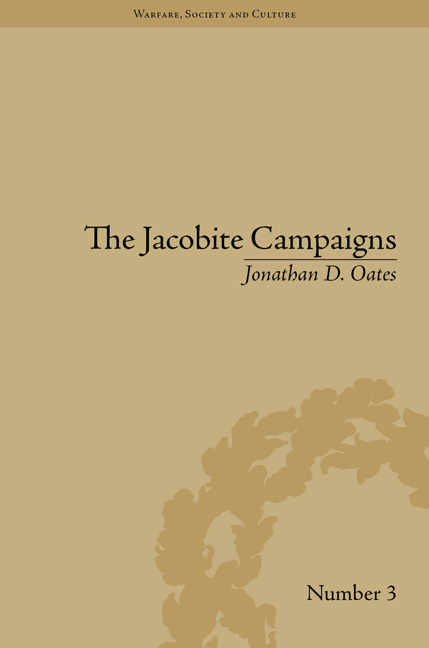2 - The Army on Campaign
Summary
Most of the efforts of the men of the regular army during the Jacobite campaigns, as on campaign overseas, was not taken up with the deadly business of siege or battle. For the commanders and men it was the far more mundane business of marching, eating and sleeping which took up most of their time, but these were imperative in order to ensure that they were capable of combat. In these, the direct authority of a general was limited, however, even if he were a captain general as Marlborough had been, or was a King's son. The general had control of operations, tactics, training and discipline. Yet commanders had also to deal with civil authorities, and these loomed especially high when the campaign was on home soil. The Treasury, answerable to Parliament, supplied money, the Ordnance supplied arms and ammunition, and the Cabinet decided on overall strategy. Their representative figures included the Secretaries of State in London, paymasters and commissaries, judicial officials, the county elites of the lieutenancy and justices of the peace, and right down to the level of parish constable. It was upon these civilians that the army depended for its pay, provisioning, billeting, transport and intelligence, such was the superiority of the civil arm to the military. Put simply, the army could not operate in the domestic context without the cooperation of the civil state, though this was less apparent overseas.
- Type
- Chapter
- Information
- The Jacobite CampaignsThe British State at War, pp. 23 - 66Publisher: Pickering & ChattoFirst published in: 2014



